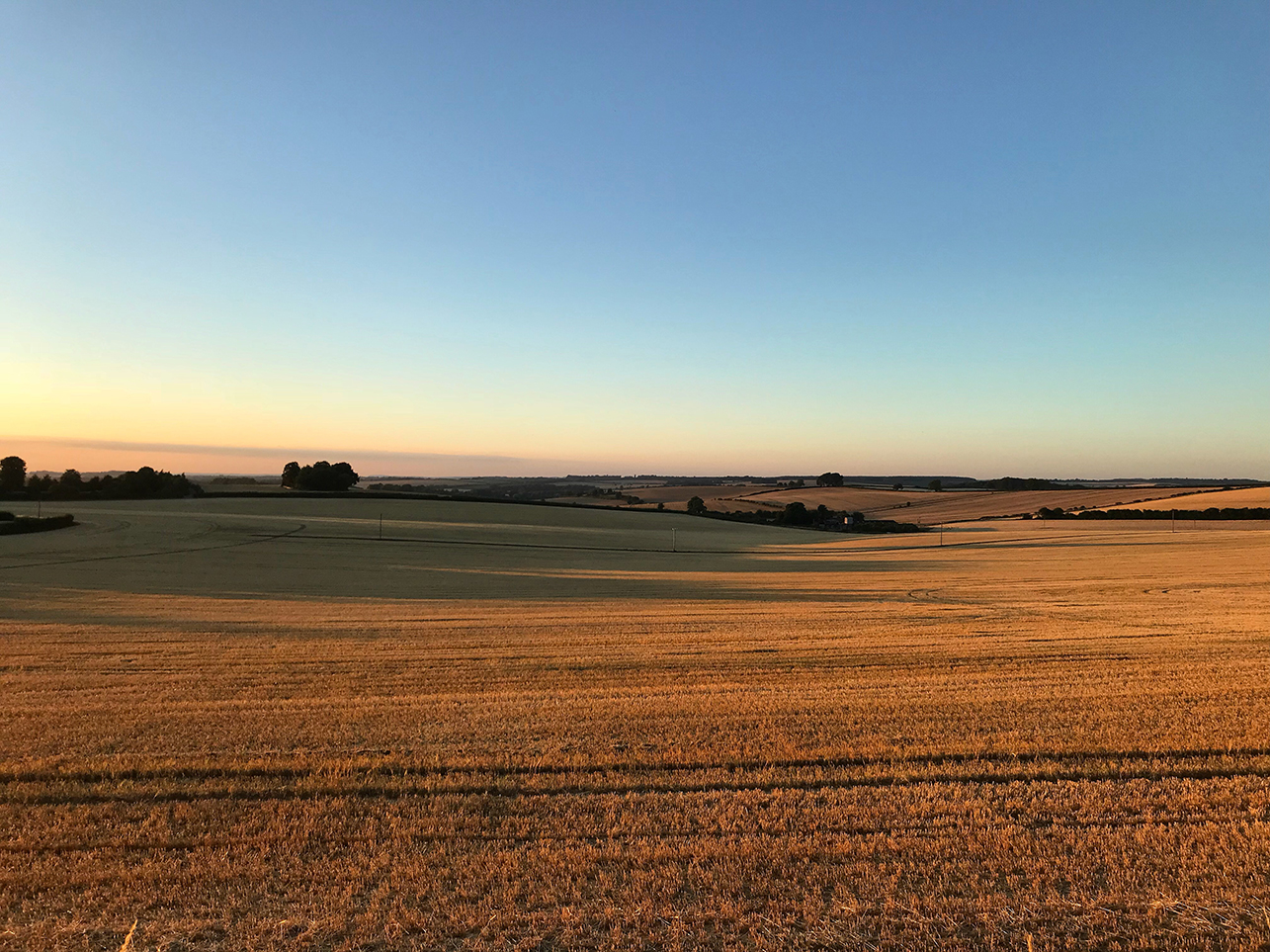Parched but pleasant land
There is no doubt, that climate change is one of the greatest threats facing the countryside today, but the disconnect between policy and the reality of the challenge has never felt greater, writes Daniel Carey-Dawes.
Rural areas face being at the forefront in the battle against climate change, but as the summer of 2018 demonstrated, memories can fade quickly …
Sitting in our office on London’s South Bank, gazing out the window at leaden skies, the extreme heat of only a few weeks ago now seems a distant memory. However, whilst our own recollections of the summer may be fading quickly, the data generated by the extreme global weather will provide material for climatologists to trawl through for years to come.
It was a summer that saw extensive moorland fires decimate the countryside for millions of people across Lancashire and Yorkshire. Small towns found themselves under a blanket of smoke for days as fires spread across the landscape. Habitats were destroyed and there was damage done to ecosystems that will take years to recover. Across the country more generally, wildfires developed with alarming regularity. The site of fire engines –many manned by volunteer fire fighters, racing across the countryside to the latest field fire or heathland blaze – became an all too common sight.
As testing as these times were for Britain’s rural communities, we were fortunate the fires led to no significant loss of life. In Greece and other parts of the Mediterranean, the situation was quite different. Wildfires spread at a speed and strength that led to the catastrophic loss of life. Dozens of people died, chased by walls of fire of which the only way to escape was to run into the sea. Wildfires are not uncommon in Southern Europe. However, the intensity and speed with which the fire spread, spurred on by days of temperatures in the high-30s celsius, made this an entirely different phenomenon.
Beyond Europe, other nations felt the impact of our changing climate. In Oman, a small town recorded what is believed to be the highest minimum temperature ever recorded on Earth – over the course of a day, the temperature never dropped below 42.6C (109F), . In Japan, at least 80 people died due to a ‘blistering heatwave’ – most of them were over 65-years-old. Whilst the actual climate was busy breaking records, the political climate appeared stuck in the same pattern of policies we are all familiar with.
This summer CPRE, working with a wide range of partners, has been fighting to persuade the government to drop its proposals to fast-track fracking through the planning system. The plans, which are currently out for consultation, have the potential to group exploratory drilling in the same category as erecting a shed or garden fence, meaning no formal planning permission would be required. If shale gas deposits are found, the proposals state applications to frack could go through the NSIP process for nationally significant infrastructure. Locking town halls and local councils out of the final say on whether fracking should go ahead with the government making the final decision.
There is no doubt, that climate change is one of the greatest threats facing the countryside today. There are many risks associated with fracking, from cumulative damage to the landscape and tranquillity to it putting us even further away from meeting our carbon reduction targets. The disconnect between policy and the reality of the challenge we are facing has never felt greater.
Perhaps part of the explanation for this disconnect lies in the lack of awareness of precisely what climate change will mean for rural communities. It is not because the evidence is not out there. The Committee on Climate Change has said the proportion of prime farmland in the UK is likely to fall from 38 per cent to 9 per cent due to the loss of soil fertility. The implications for food prices and security are obvious. This spring the National Infrastructure Commission highlighted the risk of water shortages with profound implications for agriculture, as well as domestic and business use. At the other end of the spectrum, more frequent bursts of intense rainfall will put more homes at risk of flooding, whilst coastal erosion continues to eat away at clifftop communities on England’s east coast.
So, if the evidence is there, why aren’t we doing more to stop climate change and in the case of fracking, pursuing policies that risk making the situation worse? Perhaps because whilst the facts are clear their true significance has yet to hit home. In a 24-hour media cycle, predictions of floods, heatwaves and crop failures can get subsumed into the amorphous mass of miserable news we are all exposed to. We have grown weary of it to the extent that such claims no longer hit home in the way they once did.
Our job, therefore, must be to cut through the complacency and make a case to the public and decision makers, that unlike some of the other constant media warnings of impending Armageddon, climate change is a real threat. As we enter the final months of 2018, CPRE will be stepping up in its role along with over 130 other NGOs in the Climate Coalition to press the government for tougher action on carbon reduction. The temperature may have cooled, but the message of this summer needs to be heeded if we are to safeguard our countryside and planet in the years ahead.

